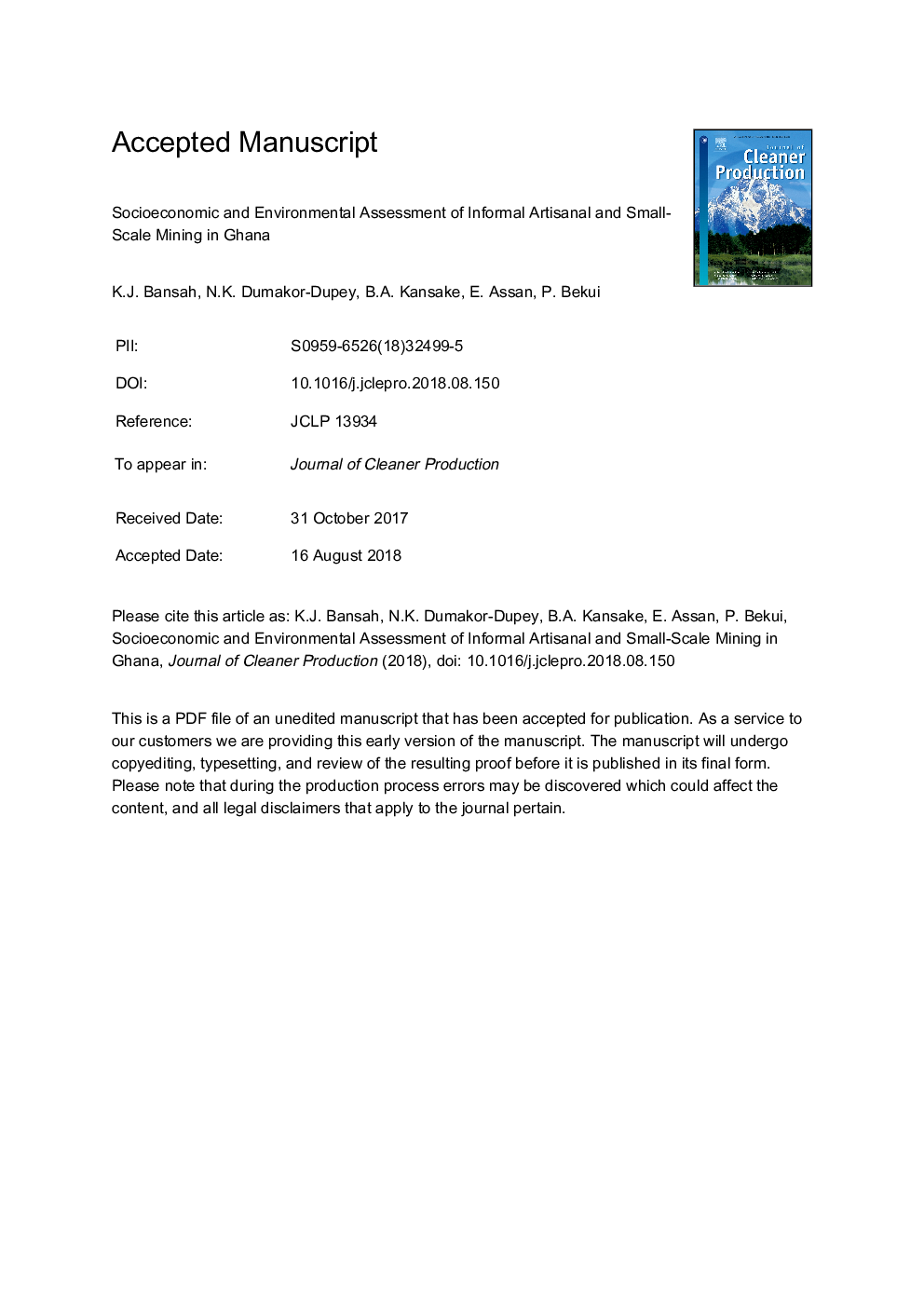| Article ID | Journal | Published Year | Pages | File Type |
|---|---|---|---|---|
| 8948818 | Journal of Cleaner Production | 2018 | 37 Pages |
Abstract
The socioeconomic and environmental impacts of informal artisanal and small-scale mining (ASM) in Ghana are assessed in this paper. The paper includes a case study of an informal ASM-affected community located in the Western Region of Ghana. A two-phase mixed-method approach consisting of literature reviews, questionnaires, interviews, and water quality assessments was employed. The informal ASM was found to be a significant source of livelihood for many rural people who have few employment alternatives. However, it was observed to promote truancy, child labor, teenage pregnancy, and environmental degradation. Water quality was significantly affected by turbidity, followed by manganese and iron, leading to a water quality index at least 500% higher than the upper limit for potability. The authors describe economic, political, social, regulatory, and technological factors as major drivers for the informal ASM. Formalization of the informal ASM in Ghana could minimize the socioeconomic impacts and ensure environmental performance.
Related Topics
Physical Sciences and Engineering
Energy
Renewable Energy, Sustainability and the Environment
Authors
K.J. Bansah, N.K. Dumakor-Dupey, B.A. Kansake, E. Assan, P. Bekui,
